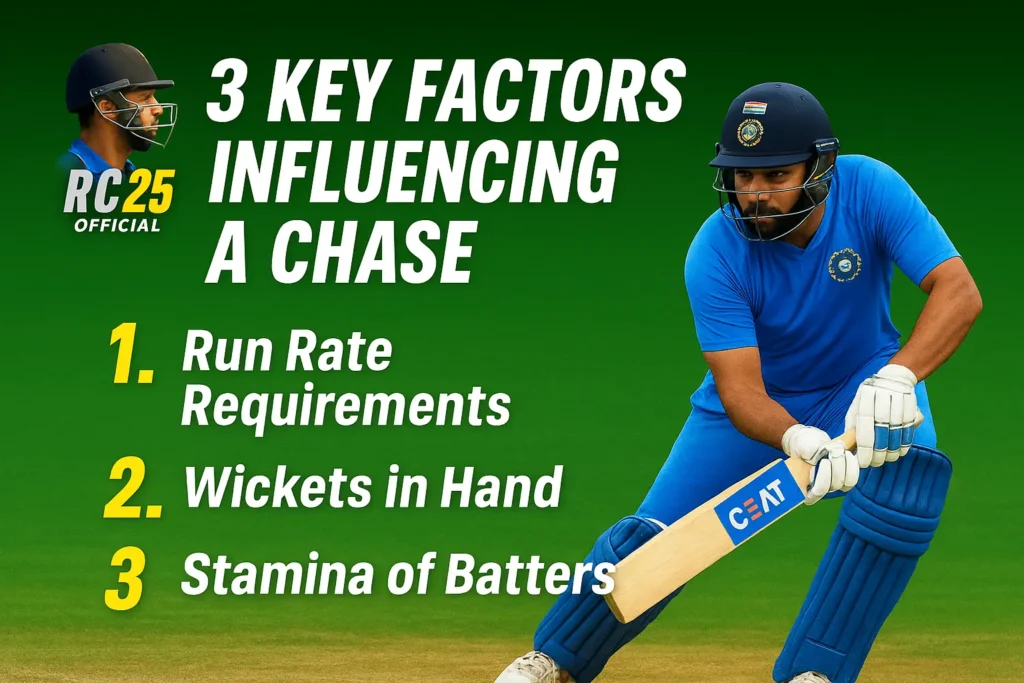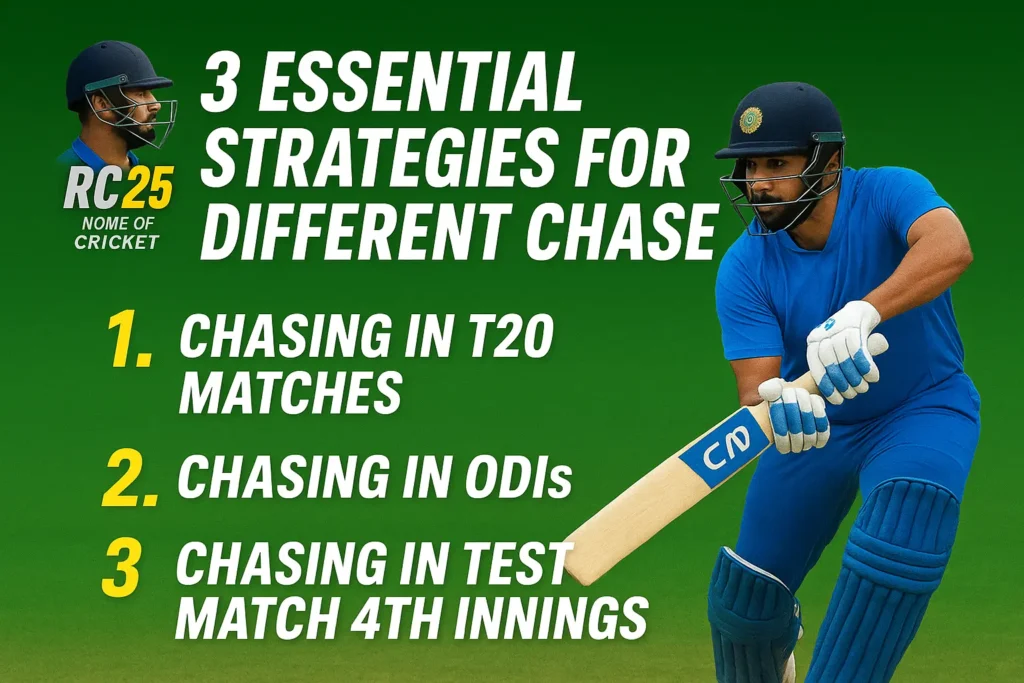Nothing excites cricket fans more than a tense chase. Whether it’s a T20 thriller or the final day of a Test, chasing is the real test of nerves. In RC 25, mastering chase mechanics in pressure situations is the difference between a dramatic win and a heart-breaking collapse.
You can’t rely only on big shots; smart planning, patience, and calm execution decide whether you win or lose.
Understanding Chase Mechanics in RC 25
In RC 25, chase mechanics are all about balancing aggression with patience. The game rewards smart shot selection, efficient strike rotation, and knowing when to take risks under pressure.
Planning a chase becomes even more interesting when you design your own scenarios. Our article on Customizable Tournaments covers how to build matches with different chase challenges.”
What Are Chase Mechanics?
In RC 25, chases are not random. The game engine calculates several things; required run rate, overs left, wickets in hand, and your batting style. Understanding this helps you react better under pressure.
3 Key Factors Influencing a Chase

- Run Rate Requirements: The higher the asking rate, the riskier your shots must be
- Wickets in Hand: Losing quick wickets almost always leads to collapse
- Stamina of Batters: Tired players struggle to hit clean shots
Building a Winning Mindset During Pressure Chases
Staying Calm and Reading the Situation
Panic is your biggest enemy. Before each ball, check the scoreboard, analyse the bowler, and make a plan.
Avoiding Panic Shots
Don’t swing wildly. Even pros say, “In pressure, it’s the singles and twos that win matches, not just sixes.”
Confidence in Your Batting Order
Know which of your batters are best suited to finish the game. If you trust your lineup, you won’t feel desperate.
3 Essential Strategies for Different Chase Scenarios

- Chasing in T20 Matches: In T20, every ball counts. Use the powerplay wisely, find boundaries, and keep a clean strike rotation. Saving your big hitter for the last overs often makes the difference.
- Chasing in ODIs: ODIs are about balance. Focus on partnerships, rotate strike in the middle overs, and then accelerate in the last 10. Smart pacing avoids late panic.
- Chasing in Test Match 4th Innings: Here, patience is key. Build partnerships, punish loose deliveries, and don’t rush. Test match chases are all about mental strength.
Shot Selection – The Heart of Pressure Chasing
Smart Use of Innovative Shots
Shots like the switch hit or scoop can change a match; but only if used at the right time. In RC 25, try them against weaker bowlers or predictable field settings.
Risk Management – When to Go Big vs. Play Safe
If the required rate is under control, play safe. If it climbs, target boundaries strategically.
Targeting Weak Bowlers and Field Gaps
Spot bowlers under pressure and exploit gaps in the field. This keeps the scoreboard moving without much risk.
Managing Partnerships During Chases
Building Anchors and Finishers
One batter should hold the innings, while the other takes risks. This combination works in almost every format.
Communication Between Batters
Quick calls for singles and doubles avoid run-outs. In pressure, even small mistakes cost matches.
Rotating Strike to Ease Pressure
Singles relieve pressure, frustrate bowlers, and prevent dot-ball build-up.
Common Mistakes Players Make While Chasing
- Playing reckless strokes too early.
- Ignoring easy singles.
- Misjudging the bowler in death overs.
Avoiding these mistakes is half the battle won.
Pro Tips to Win Pressure Chases in RC 25
- Using Powerplay Overs Wisely: Powerplays are golden opportunities. A quick start reduces pressure later.
- Keeping a Hitter for the Death Overs: Always save a finisher. A player who can hit boundaries under pressure is your trump card.
- Saving Stamina and Avoiding Collapse: Fatigue affects timing. Rotate strike, run smartly, and protect your main batters.
Learning from Real Cricket Legends
Great chasers always stress the same thing; stay calm and back your plan.
As one expert once said, “Chasing is not about the last over. It’s about controlling the middle phase and staying in the game.
Final Thoughts
Mastering chases in RC 25 isn’t about luck. It’s about balance; keeping your mind steady, rotating strike, using powerplays, and finishing strong.
Practice these strategies, and you’ll notice how pressure chases become exciting challenges instead of nerve-wracking nightmares.
FAQ’s:
Focus on rotating the strike, avoid dot balls, and only go for boundaries when the opportunity is clear.
Most players get out by over-attacking. Balance defence and attack, and play according to the required run rate.
Save wickets, build partnerships early, and use power hitters in the final overs to accelerate.






